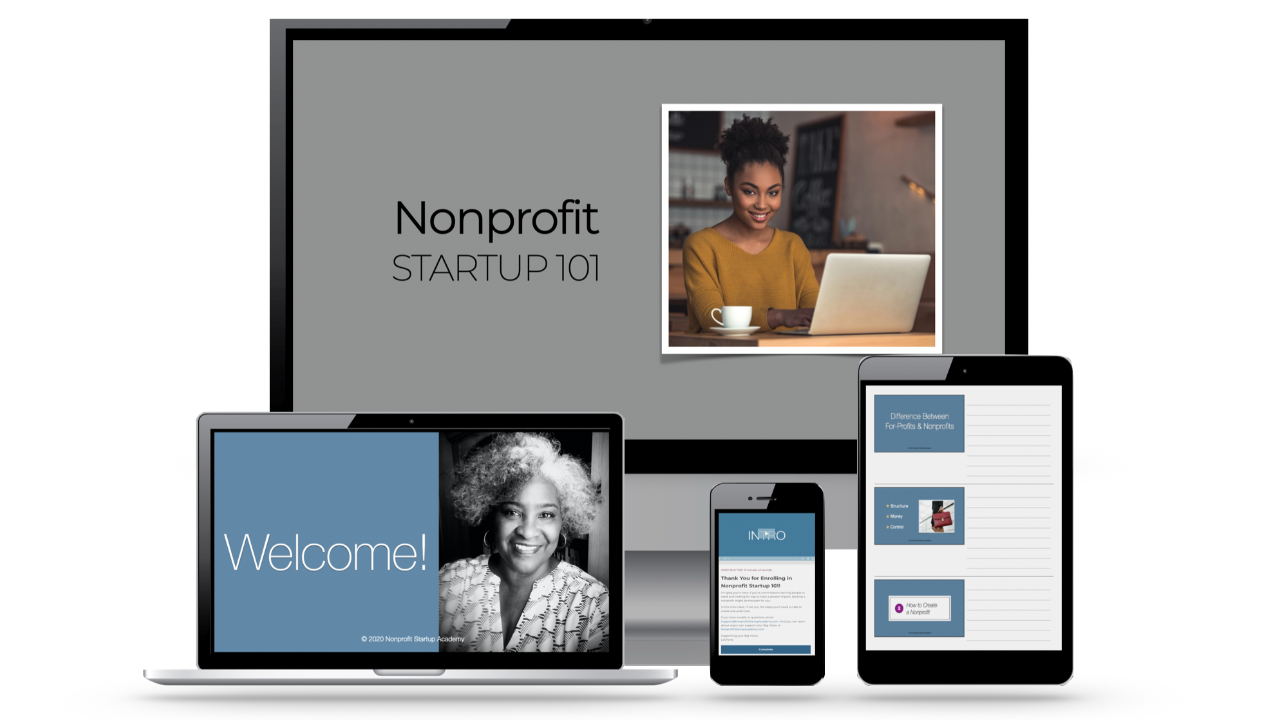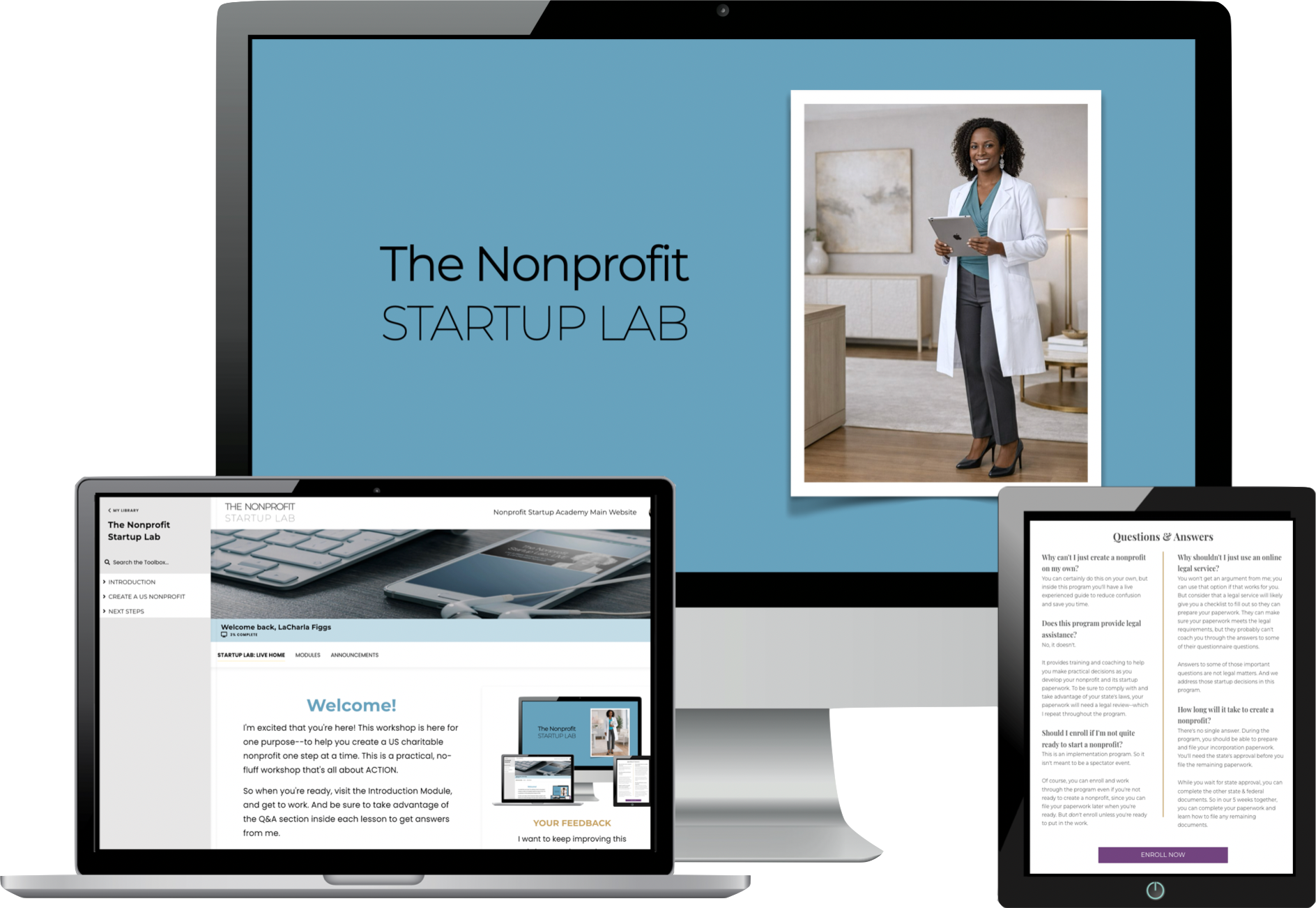
You have a Big Vision: making a real difference in the world. You've done more than dream about it and talk about it, too. You’ve launched a nonprofit, and now you're leading it.
As time has gone on, you've started thinking about your legacy and how you can leave the nonprofit to your children.
Family Legacy
I’ve worked with nonprofit organizations for a few decades now, and every once in a while I talk with a founder who wants to pass along the nonprofit to one or more family members after they retire. It’s their way of making a lasting difference in the world, ensuring that their work continues, and providing meaningful employment for their descendants.
But Is That a No-No?
This sounds like a good idea, but before you get too excited about it, let’s take a closer look.
If I want to leave something to my descendants–and be sure they get it–I need a will. This legal instrument tells my family–and the probate court–how I want my property handled after I’m gone.
The problem with the idea of passing along a nonprofit to your family though is that no one is allowed to own a nonprofit, and you can’t pass along something you don’t own.
Station Break
Now, let me pause right here to say that I’m NOT a lawyer, and I certainly haven’t reviewed the Corporations laws in all 50 U.S. states! I’m saying this is generally true, and it’s true in states whose rules I’ve read.
So if you're still clutching your pearls because passing a nonprofit to your family might be a no-no, check the rules in your state. Yours might be the exception.
Back To Our Regularly Scheduled Program
Most U.S. states give a board of directors, board of trustees, or a similar body legal responsibility for overseeing nonprofit organizations. That body has legal control (no, not the founder), and no individual or group owns the organization.
Now, if we want to be real about it, nonprofit founders do sometimes pass along their leadership roles. And they do that by convincing the board to appoint a family member to replace them.
But this is not the same as handing down a business to your family, because the new leader can never own the nonprofit organization.
What's The Harm Anyway?
This tactic for “keeping a nonprofit in the family” might work in theory, but it also might become troublesome.
Visionaries are typically highly motivated, deeply committed Change-Makers. They don’t let obstacles stop them. They make connections that help them move their organizations forward, and they work tirelessly for Change.
Not only that, but these founders tend to lead through the very force of their strong personalities. Their passion, dedication, leadership, and drive attract supporters and inspire loyalty--especially from the board and potential funders.
These characteristics make them very hard to replace.
The board’s job is to safeguard the organization and its mission. So is it wise for them to appoint the founder's relative to the helm? Maybe. Maybe not.
In either case, the board is sometimes no match for a strong-willed founder, and they yield to the founder’s insistence on replacing them with a relative. If that appointment is a mistake, the board and the new leader are left to deal with the fallout.
A Possible Workaround
There is one way I've seen individuals and houses of worship attempt to preserve long-term control of the nonprofits they create: When they incorporate, they create a "membership organization," name themselves the sole member and give the member a good bit of control over board appointments.
I'm offering this as information, not a recommendation. In theory, I embrace the idea of founders having control over the organizations they create. After all, it's their vision. But IRS grants tax-exempt status with the understanding that the organization is a public charity--a holder of the public trust, rather than a personal project.
Furthermore, I believe most grantmakers want to support true public charities, and they may have reservations about organizations that appear to be personal projects without true board oversight and leadership. So that's something to explore before you go that route.
Personally, I wish there were a legal vehicle that offered the best of both worlds.
So Can I Do It?
So can you legally pass on a nonprofit to your descendants? In most cases, I say no. Can you pass its leadership to your descendants? If your board goes along with it, yes.
SHOULD you pass it along to them? That depends. You may have to decide whether it’s most important to see your descendants at the helm or to see the organization thrive for years to come.
If you can have both, great! If not you’ll have to choose one or the other.
How Can You Pass It Down?
If you’re determined to actually hand down your charitable work to your descendants, here are a couple of ideas to research:
- Create a for-profit company and provide charitable services through contracts with state and local governments.
- Create a certified BCorp (Benefit Corporation). In essence, you’d create a company that is formally committed to doing Good, rather than a nonprofit organization. This designation is not available in every state; so if you pursue it, you might have to incorporate in a state other than your own. Learn more about forming a BCorp here.
Lasting Legacy
If leaving behind a strong, productive organization is your priority, work with your board to assess the kind of leadership the organization will need after your exit. (A consultant will offer objectivity.) Consider your strategic plan and the skills and qualities your next leader will need.
The board should secure your legacy and serve the mission by choosing the best candidate for the job. Not only that, but the board’s legal Duty of Care requires that they choose the best candidate.
So as a founder, you may have to take a step back and let the board safeguard the organization and its future.
Are You Fuming Over All This?
I see you. You hate what you just read because you founded that nonprofit, and as far as you’re concerned you own it. It’s your baby! And the board is there to support your Big Vision. (I’ve seen heated comments to this effect from founders.)
But I’m the messenger, not the bad guy.
The challenge here is the law. To create a nonprofit corporation, you have to follow state law. To have that organization gain federal income tax-exempt status, you have to follow federal law. So if you create a “tax-exempt public charity” under those laws, the federal and state governments tell you what you can and can’t do.
The truth is that you necessarily exchange some personal control in order to obtain and keep nonprofit, tax-exempt status. There may be legitimate workarounds, but if you’re determined to find them, please talk to an experienced attorney and don't try to jury-rig it! (And let me know what you learn okay? :D )
Here’s to you and your legacy!


